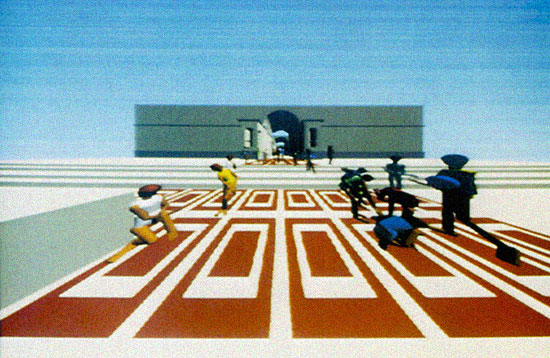In the November issue of e-flux journal, Reza Negarestani asks (and begins to answer) the most philosophical of all philosophical questions: What is philosophy? Subtitled “Axioms and Programs,” the piece is the first part of a two-part essay on the question. Here’s an excerpt:
§2. Philosophy is a program whose primary axioms are those that pertain to the possibility of thought as such. Its basic task is to elaborate the operational content behind such possibility in terms of what can be done with thought, or more broadly, what thought can realize out of itself. If “thought is or would be possible at all” then what would be the ramifications of such possibility?
The significance of philosophy is in this simple yet vastly consequential trivia that it uses the possibility of thought as its premise, as an axiom that can be systematically acted upon. In doing so, it commits to the elaboration of what comes after the premise, i.e., what can be realized from thought and what thought can do, or more accurately, the possibility of a thought set on developing its own functional realizations.
The choice of axiom is a programmatic initiative for the reason that it opens up the prospect of constructing different realizations of properties the axioms represent. Rather than simply being a neutral assumption—or worse, an entrenched dogma—philosophy’s axiomatization of the possibility of thought is the first major step toward programming thinking as such.
